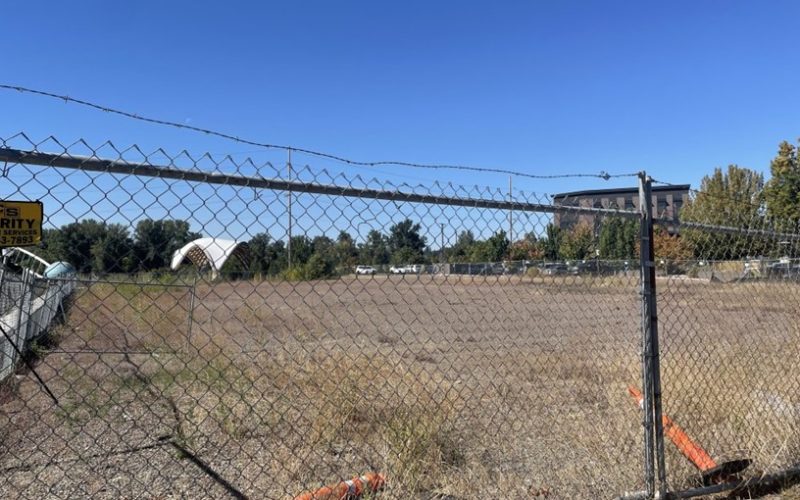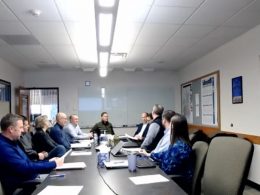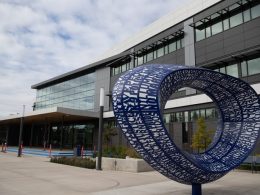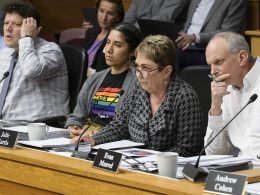Salem, OR — One of downtown Salem’s last remaining vacant blocks could soon be transformed into a dynamic new space that blends affordable housing, food options, and community events. City officials and developers are exploring three potential plans for the site, which has long been a focal point for those advocating for urban renewal in the area.
The block, located at the heart of Salem’s downtown district, has the potential to become a cornerstone of the city’s ongoing revitalization efforts. While the area has seen considerable growth in recent years, the vacant property has remained a prime, yet underutilized, parcel of land. Now, the city faces an exciting decision: should it become affordable housing, a food hall and event venue, or a mixed-use development?
The most pressing proposal is the development of affordable housing. With rising rent prices and a tight housing market, many residents and advocates have pushed for more affordable living options in the downtown area. According to local housing organizations, there is a significant demand for budget-friendly housing in the city center, particularly among low- and middle-income families and individuals.
“Affordable housing is one of the most urgent needs in Salem,” said Julia Bennett, Executive Director of the Salem Housing Authority. “If we can develop housing on this block, it would provide much-needed stability for a wide range of residents and help preserve the diversity of our downtown community.”
City officials have acknowledged the growing need for affordable housing but have also pointed out that a development of this scale would require a mix of public and private investment, as well as careful consideration of the city’s zoning regulations and the architectural aesthetics of the downtown area.
An alternative proposal envisions the space as a vibrant food hall and event venue, catering to the city’s growing food scene while also providing a venue for local events, performances, and gatherings. This concept has received enthusiastic support from both food entrepreneurs and community leaders who see it as a way to revitalize the area, attract visitors, and provide a unique gathering space for Salem’s residents.
A food hall would allow multiple vendors to showcase their culinary offerings in a communal setting, offering everything from international cuisine to locally sourced meals. In addition to food, the venue would double as an event space, hosting everything from live music performances to art shows and farmers’ markets. This concept would transform the block into a year-round destination for both locals and tourists.
“Salem has a thriving local food scene, but we need a central space that can unite different tastes and cultures,” said Marcus Harris, a local restaurant owner. “A food hall would bring something fresh and exciting to downtown, while also giving smaller vendors a platform to grow.”
The event space component could further enrich Salem’s cultural landscape, offering a flexible venue for performances, workshops, and other community-driven events.
A third option being considered is a mixed-use building, combining residential apartments with ground-floor retail space. This proposal would bring new housing to downtown while also fostering economic activity through retail stores and small businesses.
Mixed-use developments are increasingly popular in urban areas, as they provide residents with the convenience of living near their workplaces, shops, and restaurants. A mixed-use project could feature apartments on the upper floors, with cafes, boutiques, or offices on the ground level, creating a live-work-play environment that promotes both residential and commercial growth.
“Mixed-use developments are a win-win for both residents and business owners,” said urban planner Anna Clarke. “It makes downtown a more livable, walkable area while also supporting local entrepreneurs and retailers.”
While this plan could add to the city’s housing stock, it also presents challenges in terms of balancing the needs of residents with the types of retail that would thrive in the downtown core. Finding the right mix of tenants will be crucial for ensuring the development’s long-term success.
The city of Salem now faces a critical decision regarding the future of its downtown space. While each proposal offers distinct advantages, they also come with their own set of challenges. Balancing affordability with economic growth, and maintaining the city’s unique character while fostering innovation, will require thoughtful planning and collaboration among city officials, developers, and the community.
As discussions continue, residents and stakeholders are encouraged to weigh in and share their thoughts. Public hearings and forums are expected to be held in the coming months, allowing Salem’s community to have a voice in shaping the future of this important site.
Whatever the final decision, the development of downtown Salem’s last vacant block is poised to be a defining moment in the city’s ongoing transformation, and the opportunity for positive change is one that many are eager to see realized.











